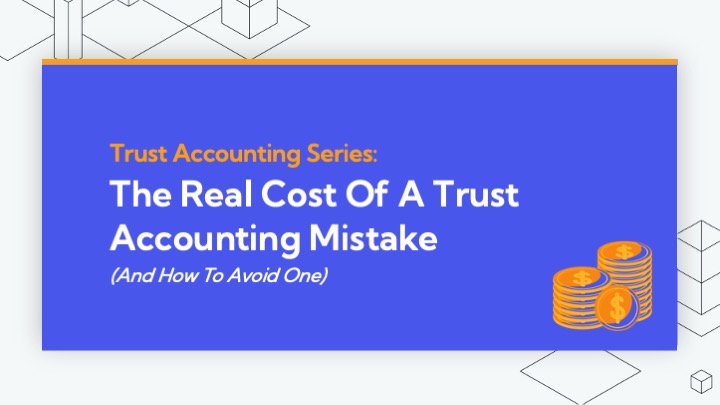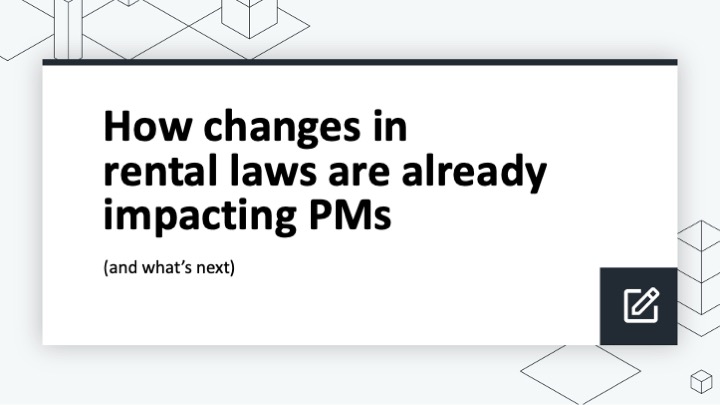Mistakes happen in every part of property management. But when it comes to trust accounting, even a small error can lead to major headaches. You might think a $50 misallocation or a late payment is no big deal. The truth is, these seemingly minor slips can snowball into costly problems - financially, legally, and reputationally.
Why trust accounting mistakes matter so much
Trust accounting is all about managing money that belongs to landlords and tenants. You are essentially the middleman, responsible for handling funds accurately and transparently. If something goes wrong, it’s not just an accounting error; it’s a breach of trust.
Getting it wrong can lead to serious consequences, including:
- Financial penalties or fines from regulators
- Damage to your professional reputation
- Loss of landlord or tenant confidence
- Potential legal action or licence suspension
For example, we spoke with a property manager who accidentally paid a landlord twice because a manual entry was duplicated. This wasn’t caught for several weeks, which caused confusion, tied up funds unnecessarily, and led to a lengthy and frustrating resolution process. Thankfully, they said goodbye to manual entries and started using our Reapit PM platform instead.
Real examples of trust accounting mistakes
Mistakes can take many forms, but some of the most common include:
- Misallocated payments: When rent or bond money is credited to the wrong property or tenant account, it causes confusion and delays.
- Late disbursements: Paying landlords late can damage relationships and sometimes lead to contractual penalties.
- Unreconciled discrepancies: Small differences between records and bank statements can escalate into bigger problems if ignored.
- Missing or incomplete documentation: Without proper paperwork, it’s difficult to prove transactions during an audit.
Even simple human errors like typos or forgetting to receipt a payment can create ripple effects that take hours or days to fix.
The hidden costs beyond money
It’s easy to focus only on direct financial penalties, but mistakes in trust accounting have wider impacts:
- Stress and lost time: Fixing errors takes time away from other important tasks. It often means late nights and catching up on weekends.
- Damaged client trust: Landlords and tenants expect professionalism. Errors can make them question your reliability.
- Audit risk: Mistakes increase the chance of audits, which can be disruptive and stressful. Auditors dig deep into records, and any gaps can lead to further consequences.
How to avoid costly mistakes
Avoiding trust accounting mistakes starts with good habits and smart tools. Here are some proven strategies:
- Double-check entries before finalising: Take a moment to review payments and disbursements to catch obvious errors.
- Use property management software designed for trust accounting: Automation reduces manual errors and keeps records organised.
- Reconcile your accounts frequently: Weekly or even daily reconciliations help you spot and fix issues before they escalate.
- Keep detailed, organised records: Good documentation means you can back up your accounts easily during reviews or audits.
- Train your team regularly: Make sure everyone handling trust accounting understands best practices and the importance of accuracy.
Building a culture of accuracy and accountability
Mistakes are less likely when trust accounting is treated as a priority at every level. Encourage your team to ask questions, report discrepancies early, and follow procedures carefully. Consider regular internal audits or peer reviews to catch problems before regulators do.
Trust accounting mistakes aren’t just bookkeeping errors. They can threaten your business’s financial health and your professional reputation. Taking simple but consistent precautions will keep you compliant, reduce stress, and build stronger relationships with landlords and tenants.
Remember, it is better to slow down and get it right the first time than to rush and face costly consequences later.
Big things are coming for trust accounting. Join us at Evolve ’25 to see the latest innovations built to make compliance and payments easier for every property manager.





.png)
